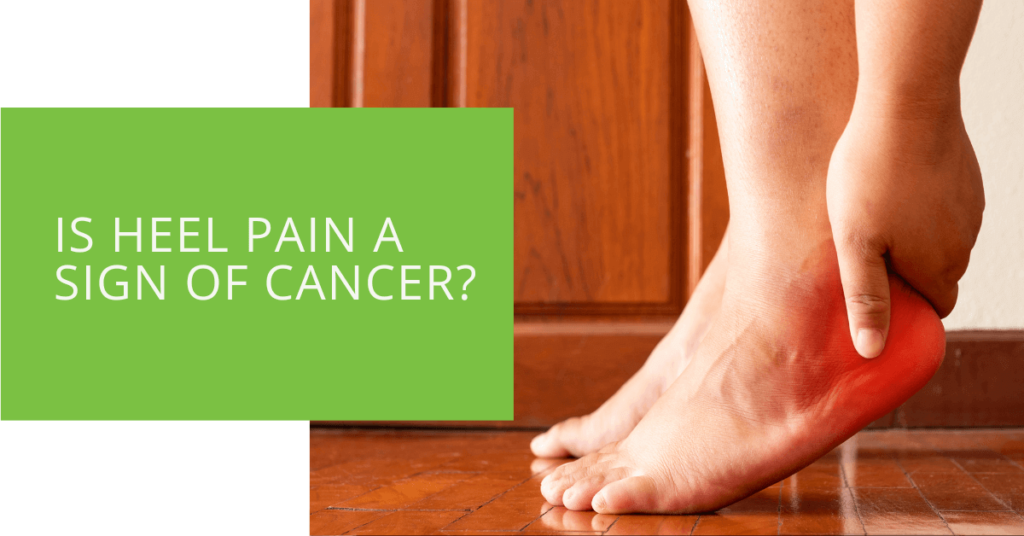Heel pain is a common ailment that many individuals experience at some point in their lives. Often associated with conditions like plantar fasciitis or Achilles tendonitis, heel pain can generally be attributed to overuse, injury, or biomechanical issues. However, the concern arises when heel pain persists, leading many to wonder: Is heel pain a sign of cancer?
In this comprehensive guide, we explore the possible causes of heel pain, the likelihood of it being related to cancer, and when it is crucial to seek medical advice.
Understanding Common Causes of Heel Pain
1. Plantar Fasciitis: The Most Common Culprit
Plantar fasciitis is by far the most frequent cause of heel pain. This condition occurs when the plantar fascia, a thick band of tissue that runs across the bottom of your foot, becomes inflamed. The inflammation leads to sharp pain, particularly with the first steps after waking up in the morning. While painful, plantar fasciitis is not life-threatening and is typically treated with rest, physical therapy, and, in some cases, orthotics.
2. Achilles Tendonitis: Overuse and Inflammation
Another common cause of heel pain is Achilles tendonitis, which involves inflammation of the Achilles tendon. This condition is often seen in athletes or individuals who have suddenly increased their activity levels. The pain is usually located at the back of the heel and can be managed with rest, ice, and stretching exercises.
3. Heel Spurs: A Bony Growth
Heel spurs are calcium deposits that cause a bony protrusion on the underside of the heel bone. These can be painful, especially when walking or standing. Heel spurs are often associated with plantar fasciitis and can be managed with similar treatments, such as orthotics and anti-inflammatory medications.
When Heel Pain Could Be a Sign of Cancer
1. Bone Cancer: A Rare but Serious Concern
While the majority of heel pain cases are benign and related to overuse or injury, in rare instances, persistent heel pain can be a symptom of bone cancer. Bone cancer in the heel could manifest as continuous, worsening pain that doesn’t improve with rest or typical treatments. The pain is often accompanied by other symptoms, such as swelling, a palpable lump in the area, or unexplained weight loss.
2. Metastatic Cancer: Cancer That Spreads
Metastatic cancer occurs when cancer from another part of the body spreads to the bones, including those in the foot and heel. Cancers such as breast, lung, or prostate cancer can metastasize to the bone, leading to pain in areas like the heel. In such cases, the pain is usually severe, constant, and progressively worsening. Additionally, the affected area might feel warm to the touch, and there could be visible swelling.
3. Soft Tissue Tumors: Benign and Malignant
Soft tissue tumors, whether benign or malignant, can also cause heel pain. These tumors can develop in the muscles, tendons, or other soft tissues of the foot. While benign tumors might cause discomfort due to their size or location, malignant tumors (sarcomas) are more concerning and require prompt medical attention. Symptoms might include a noticeable lump, persistent pain, and sometimes, changes in skin color over the affected area.
Symptoms That Should Prompt Immediate Medical Attention
1. Persistent and Worsening Pain
If you experience heel pain that persists despite rest, ice, and over-the-counter pain medications, it is important to consult with a healthcare professional. Continuous, worsening pain could indicate a more serious underlying condition, including the possibility of cancer.
2. Swelling and a Palpable Lump
Swelling around the heel, especially if accompanied by a noticeable lump, should be evaluated by a doctor. These symptoms could be indicative of a tumor, whether benign or malignant, and early diagnosis is crucial for effective treatment.
3. Unexplained Weight Loss and Fatigue
Unexplained weight loss and fatigue, along with heel pain, are red flags that should not be ignored. These symptoms could be signs of a systemic condition such as metastatic cancer, and prompt medical evaluation is essential.
4. Night Pain or Pain at Rest
Pain that disrupts sleep or is present even when at rest is another concerning symptom. Unlike mechanical heel pain, which typically improves with rest, cancer-related pain often worsens at night or when lying down. This type of pain warrants further investigation to rule out serious conditions.
Diagnosis and Treatment of Cancer-Related Heel Pain
1. Diagnostic Imaging: X-rays, MRI, and CT Scans
If cancer is suspected, your doctor will likely recommend diagnostic imaging to get a clearer view of the heel and surrounding tissues. X-rays can reveal bone abnormalities, while MRI and CT scans provide detailed images of both bones and soft tissues, helping to identify tumors or other irregularities.
2. Biopsy: Confirming the Diagnosis
In cases where a tumor is detected, a biopsy may be necessary to determine whether the tumor is benign or malignant. This procedure involves taking a small sample of tissue for examination under a microscope. The results will guide the treatment plan, whether it involves surgery, radiation, chemotherapy, or a combination of therapies.
3. Treatment Options: Surgery, Radiation, and Chemotherapy
The treatment for cancer-related heel pain depends on the type, location, and stage of cancer. Surgery may be performed to remove the tumor, particularly if it is localized. Radiation therapy can help shrink tumors and relieve pain, while chemotherapy may be used to target cancer cells throughout the body. In some cases, a combination of these treatments is used to achieve the best outcome.
Conclusion: Vigilance and Early Detection Are Key
Is heel pain a sign of cancer? While heel pain is most commonly due to benign conditions such as plantar fasciitis or heel spurs, it is important to be vigilant about persistent, unexplained pain. Understanding the potential link between heel pain and cancer can help individuals seek timely medical advice and receive appropriate care. Early detection is crucial in managing cancer effectively, so never hesitate to consult with a healthcare professional if you have concerns about your symptoms.
